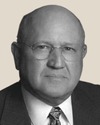The end of a recession is the perfect time for contractors to rebuild their organizations using new and sustainable models because growth as a business model doesn't work in a cyclical market. The successful contractor of the future will be organized to go up and down in annual sales to cope with market conditions and avoid chasing inappropriate work just to maintain volume for its own sake. The secret to this strategy is a concept that I call flexible overhead.
Since World War II, there have been more growth years than declines, and many contractors have adopted growth as a business model. With the paradigm of growth came the need to increase overhead to cope with the ever-increasing workload.
 |
| SCHLIEFER |
Often, after a growth spurt, a company would scramble to capture the new volume of sales that defined the new larger organization. This is the sequence of both planned and unplanned growth of most midsize and larger construction organizations today. The process works fairly well in a growing, healthy market, but accounts for the immediate, industry-wide drop in margins in a declining market. Contractors refuse to give up hard-earned growth from better times.
The successful contractor of the future will be profitable in good markets and bad, and the drive for size measured in sales will be replaced with a drive for prosperity measured in profitability. I have often asked contractor audiences whether they would like to pick one project from the prior year and not have done it. The answer is an almost universal yes. These construction business people are saying, in effect, that they would opt for a smaller sales volume in order to make more profit—which, of course, is accomplished by avoiding money-losing jobs.
The Overhead Paradox
Some say the overhead paradox is that you can't get half a person, half a truck or half a piece of equipment. But actually, you can. The flexible-overhead concept recommends that 15% to 25% of all overhead costs be engaged in such a way that the overhead costs can be turned off in a week or less and in some cases in a day. In other words, they are not taken on as permanent expenses but as rental, temporary personnel, interim office space, etc.
The 15%-to-25% range should accommodate the concern and skepticism of many who will suggest this concept is impractical and too expensive. They will claim temporary personnel are less qualified or costly, it is cheaper to own equipment than to rent it, and so on. This is an error, because during each down market, many companies give back in losses some (or all) of what they gained in profit during good years.
The measurements have been made and the reality tested. The "extra" costs are simply low-cost insurance against even larger losses resulting when excess overhead cannot be reduced and isn't needed. The success of a construction business cannot be measured by the difference between total sales and operating profit, but must include the measure of operating profit to overhead.
When you get control of overhead through the flexible-overhead concept, sales no longer drive the entire organization. Without a desperate need for sales, organizations can go after only projects that are of a size, geographic area and type of construction they normally profit from and stop chasing any nontypical, higher-risk work just because they feel they have to maintain sales to cover fixed, permanent expenses.
The contractor of the future will simply reduce overhead at will practically overnight. The concept includes doing only work that is normally profitable for the organization and avoiding work that is out of the ordinary. The options are clear, especially when a contractor thinks about the contracts that never should have been taken.
Thomas C. Schleifer, Ph.D., is a management consultant, research professor at the Del E. Webb School of Construction at Arizona State University and author of the new book, "Managing the Profitable Construction Business." He can be reached at tschleifer@q.com or 480-945-7680.




